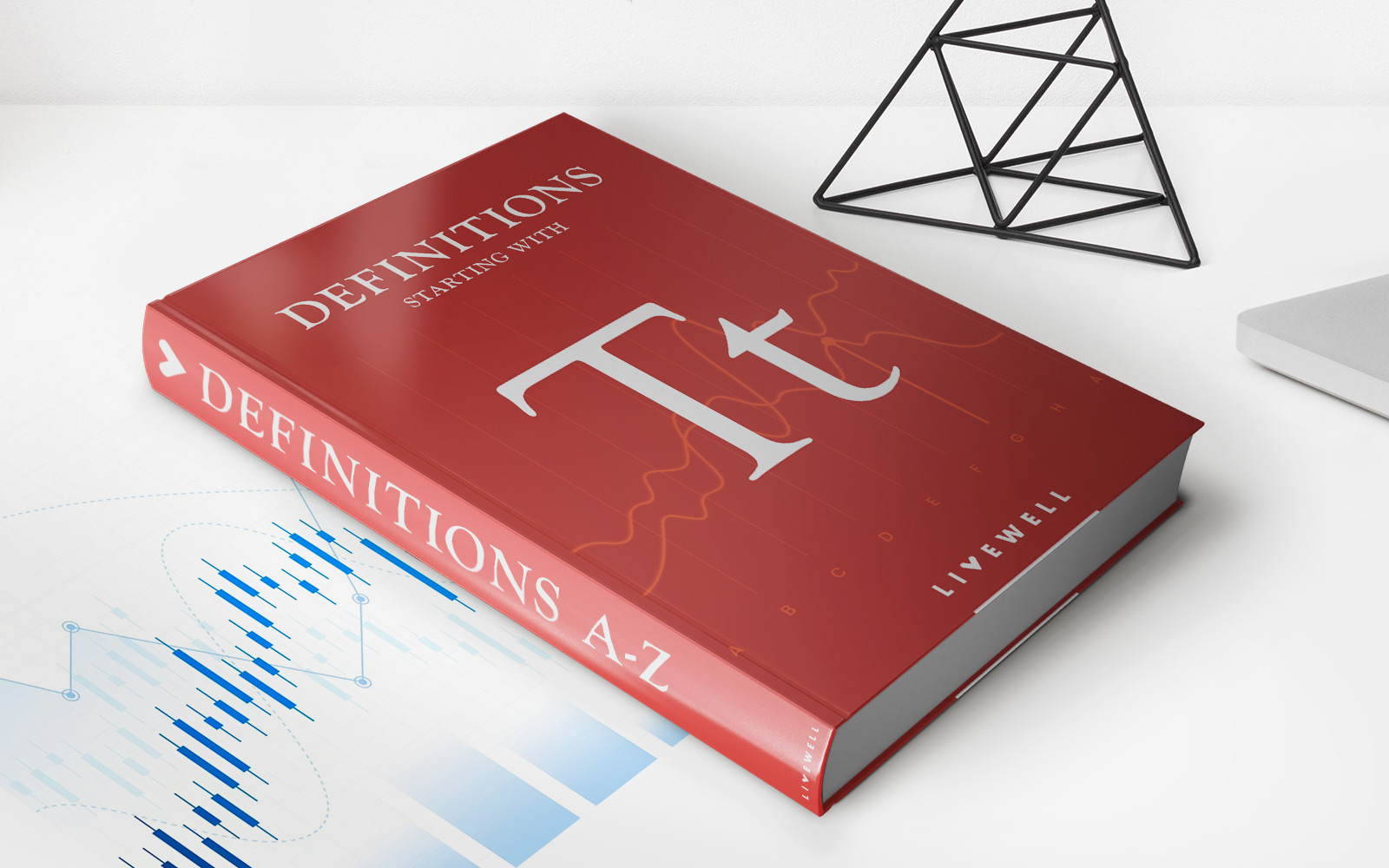

Finance
What Is A Trust Accounting
Published: October 9, 2023
Discover the essentials of trust accounting and its importance in finance. Learn how it ensures accurate financial records and complies with legal requirements.
(Many of the links in this article redirect to a specific reviewed product. Your purchase of these products through affiliate links helps to generate commission for LiveWell, at no extra cost. Learn more)
Table of Contents
Introduction
Trust accounting is a crucial aspect of the financial and legal industries. It involves the management and tracking of funds held in trusts on behalf of beneficiaries. Trusts are legal arrangements where assets are placed under the control of a trustee, who is responsible for managing and distributing the assets according to the terms specified in the trust agreement.
Trust accounting ensures transparency and accountability in handling funds for beneficiaries, who may include individuals, charitable organizations, or even future generations. This specialized field requires expertise in financial management, legal compliance, and attention to detail.
In this article, we will delve into the intricacies of trust accounting, the purpose it serves, the legal requirements involved, and the responsibilities of a trust accountant. We will also explore common methods used in trust accounting, the challenges faced in this field, and the significance of trust accounting in the legal and financial industries.
Whether you are a professional working in the financial or legal sectors, a trustee appointed to manage a trust, or simply someone interested in understanding the complexities of trust accounting, this article will provide you with valuable insights into this fundamental aspect of fiduciary responsibility.
Definition of Trust Accounting
Trust accounting refers to the systematic and accurate tracking, management, and reporting of funds held in a trust. It involves recording and documenting all financial transactions, including deposits, withdrawals, interest earnings, and expenses associated with the trust.
A trust is a legal entity that allows an individual or organization, known as the trustee, to hold assets on behalf of one or more beneficiaries. Trusts are established for various purposes, such as wealth preservation, estate planning, charitable giving, and ensuring financial security for future generations.
Trust accounting plays a critical role in safeguarding these assets and maintaining transparency in their management. It ensures that the trustee fulfills their fiduciary duty by acting in the best interest of the beneficiaries and adhering to the terms specified in the trust agreement.
The primary goal of trust accounting is to provide accurate and up-to-date financial information regarding the trust’s assets, income, and expenses. This information helps ensure that the beneficiaries receive their rightful share of the trust’s proceeds and that any distributions or disbursements are made in accordance with the trust’s provisions.
Trust accounting involves meticulous record-keeping, often using specialized software or financial management systems. It requires tracking the flow of funds, reconciling transactions, generating reports, and maintaining proper documentation to support all financial activities related to the trust.
In summary, trust accounting serves as the financial backbone of a trust, providing transparency, accountability, and confidence in the management of assets on behalf of beneficiaries. It ensures compliance with legal and ethical standards, mitigates the risk of fraud or mismanagement, and facilitates the proper distribution of funds according to the intentions of the trust’s creator.
Purpose of Trust Accounting
Trust accounting serves multiple purposes, all aimed at ensuring the proper management, safeguarding, and distribution of funds held in a trust. Let’s explore the key objectives of trust accounting:
1. Maintaining Accuracy and Transparency: Trust accounting aims to provide accurate and transparent financial records of the trust’s assets, income, and expenses. This ensures that both the trustee and beneficiaries have a clear understanding of the trust’s financial position and activities.
2. Complying with Legal and Regulatory Requirements: Trust accounting is essential for ensuring compliance with relevant laws and regulations governing trusts. By maintaining accurate records, fulfilling reporting requirements, and adhering to accounting standards, trustees demonstrate their commitment to legal and ethical responsibilities.
3. Facilitating Beneficiary Distributions: Trust accounting ensures that beneficiaries receive the distributions they are entitled to according to the terms specified in the trust agreement. It tracks income, calculates distributions, and documents the process to ensure fair and accurate disbursements.
4. Monitoring Trust Performance: Trust accounting provides valuable insights into the performance of the trust’s assets. By analyzing financial data, trustees can evaluate the profitability or growth of investments and make informed decisions to maximize returns for the beneficiaries.
5. Preventing Fraud and Mismanagement: Trust accounting plays a crucial role in detecting and preventing fraudulent activities or mismanagement of trust funds. By implementing strict internal controls, conducting regular audits, and maintaining accurate records, trustees can mitigate the risk of financial misconduct.
6. Estate and Tax Planning: Trust accounting facilitates estate planning and tax compliance by accurately tracking assets, income, and expenses. It provides critical information for calculating estate taxes, assessing tax liabilities, and implementing strategies to minimize tax burdens.
Overall, the purpose of trust accounting is to ensure the proper administration, protection, and distribution of trust assets while upholding legal and fiduciary responsibilities. It provides a transparent and accountable framework, allowing trustees to fulfill their obligations and beneficiaries to receive their rightful share of the trust’s benefits.
Legal Requirements for Trust Accounting
Trust accounting is subject to various legal requirements to ensure the proper management and protection of trust assets. These requirements vary depending on the jurisdiction and the type of trust involved. Here are some common legal considerations:
1. Trust Laws: Each jurisdiction has its own set of laws that govern the creation, administration, and termination of trusts. These laws outline the legal framework within which trust accounting must operate. Trust accounting practices must adhere to these laws to maintain legal compliance.
2. Trust Agreement: The trust agreement serves as the guiding document for a trust and outlines the rights and responsibilities of all parties involved. It establishes the purpose of the trust, identifies the beneficiaries, specifies the powers and duties of the trustee, and sets forth the terms for trust accounting. Trust accountants must be familiar with the provisions of the trust agreement to ensure accurate record-keeping and distribution of funds.
3. Accounting Standards: Generally Accepted Accounting Principles (GAAP) or International Financial Reporting Standards (IFRS) provide guidelines for the proper presentation and reporting of financial information. Trust accounting must adhere to these accounting standards to maintain consistency, comparability, and transparency in financial reporting.
4. Financial Reporting: Trust accounting typically requires the preparation and submission of regular financial reports to the beneficiaries and, in some cases, to regulatory authorities. These reports provide a detailed overview of the trust’s financial activities, including income, expenses, assets, and distributions. Trust accountants must ensure that these reports accurately reflect the financial position of the trust and comply with reporting guidelines.
5. Record-Keeping: Trust accounting requires meticulous record-keeping to track all financial transactions, including deposits, withdrawals, investments, and expenses. These records serve as evidence of the trust’s financial activities and are essential in the event of an audit or legal dispute. Trust accountants must maintain organized and up-to-date records to meet legal requirements.
6. Audit and Compliance: Trust accounting may be subject to auditing by both internal and external auditors to ensure compliance with legal and regulatory requirements. Auditors review the accuracy of financial records, assess internal controls, and provide an independent assessment of the trust’s financial operations. Trust accountants should cooperate with auditors and provide necessary documentation for a thorough review.
7. Conflicts of Interest: Trustees and trust accountants must act in the best interest of the beneficiaries and avoid conflicts of interest. They should disclose any potential conflicts and take appropriate measures to mitigate them. Compliance with ethical standards is crucial in trust accounting to maintain trust and confidence among beneficiaries and regulatory authorities.
Adhering to these legal requirements is essential in trust accounting to ensure the proper administration and protection of trust assets. Trust accountants must stay updated with changes in laws and regulations to maintain compliance and fulfill their fiduciary duty effectively.
Responsibilities of a Trust Accountant
A trust accountant plays a crucial role in ensuring the accurate management and reporting of funds held in a trust. They are responsible for various financial and administrative tasks related to trust accounting. Here are some key responsibilities of a trust accountant:
1. Financial Record-Keeping: One of the primary responsibilities of a trust accountant is to maintain meticulous records of all financial transactions related to the trust. This includes recording deposits, withdrawals, investments, expenses, and any other financial activities. The trust accountant must ensure that these records are accurate, organized, and compliant with accounting standards.
2. Account Reconciliation: Trust accountants are responsible for reconciling the trust’s bank accounts and investment statements. This involves comparing the recorded transactions with actual bank statements and investment reports to identify any discrepancies. Reconciliation helps ensure the accuracy of the trust’s financial records and detects any potential errors or fraudulent activities.
3. Financial Reporting: Trust accountants prepare regular financial reports for the trustee and beneficiaries of the trust. These reports provide detailed information on the trust’s financial activities, including income, expenses, distributions, and the overall financial position. Trust accountants must adhere to accounting standards and ensure that the reports are accurate, transparent, and understandable.
4. Tax Compliance: Trusts may have tax obligations that need to be fulfilled. Trust accountants are responsible for ensuring compliance with tax laws and regulations. They prepare and file tax returns for the trust and handle any inquiries or audits from tax authorities. Trust accountants also provide guidance on tax planning strategies to minimize tax liabilities for the trust and its beneficiaries.
5. Trustee Support: Trust accountants often work closely with the trustee to provide financial insights and support in decision-making. They assist in evaluating investment options, analyzing financial data, and monitoring the performance of the trust’s assets. Trust accountants may provide recommendations on financial strategies to optimize returns and mitigate risks.
6. Audits and Compliance: Trust accountants may be involved in audits conducted by internal or external auditors to ensure compliance with legal and regulatory requirements. They are responsible for providing necessary documentation, cooperating with auditors, and addressing any findings or recommendations. Trust accountants must also stay updated with changes in accounting standards and regulations to maintain compliance.
7. Ethical Duty: Trust accountants have a fiduciary duty to act in the best interest of the beneficiaries. They must maintain confidentiality, avoid conflicts of interest, and exercise professional skepticism in their work. Trust accountants should uphold ethical standards and conduct their responsibilities with integrity and professionalism.
In summary, trust accountants bear the responsibility of maintaining accurate financial records, preparing reports, ensuring tax compliance, and providing essential financial support to the trustee. Their role is vital in ensuring the transparency, accountability, and proper management of funds held in a trust.
Trust Accounting Methods
Trust accounting methods refer to the different approaches and systems used to manage the financial records and transactions of a trust. These methods help ensure accuracy, efficiency, and compliance in trust accounting. Here are some commonly used trust accounting methods:
1. Cash Accounting: Cash accounting is a straightforward method where transactions are recorded when actual cash is received or disbursed. This method focuses on the timing of cash movements and may be suitable for trusts with simple financial transactions and limited investments.
2. Accrual Accounting: Accrual accounting records transactions when they are incurred, regardless of when cash is actually received or disbursed. This method provides a more comprehensive view of the trust’s financial activities and considers factors such as income earned, expenses accrued, and investments valued at fair market value.
3. Double-Entry Accounting: Double-entry accounting is a standard method used in trust accounting. It involves recording each financial transaction in at least two accounts, ensuring that debits and credits are balanced. This method provides a clear and accurate representation of the trust’s financial position and enables proper tracking of income, expenses, and asset values.
4. Software-Based Accounting Systems: Many trust accountants utilize specialized accounting software to streamline and automate trust accounting processes. These software systems offer features such as transaction recording, bank reconciliation, financial reporting, and document management. They help improve accuracy, efficiency, and organization in trust accounting.
5. Separate Ledger for Each Trust: In cases where a trust accountant manages multiple trusts, it is common practice to maintain separate ledgers for each trust. This ensures that the financial records are accurately attributed to the specific trust and enables easier tracking of assets, income, and distributions for each trust individually.
6. Segregation of Funds: Trust accounting often involves handling funds belonging to multiple beneficiaries or entities. Trust accountants use various methods to segregate these funds, such as maintaining separate bank accounts for each trust or utilizing sub-accounts within a master account. This segregation facilitates accurate tracking of funds and helps ensure compliance with legal and fiduciary responsibilities.
7. Regular Reconciliation: Trust accountants regularly reconcile trust bank accounts and investment statements to ensure that recorded transactions align with actual financial activities. This involves comparing the trust’s financial records with bank statements, trade confirmations, and other supporting documentation to identify any discrepancies and reconcile them accordingly.
It is important for trust accountants to select the appropriate accounting method based on the complexity of the trust’s financial activities, legal requirements, and the trustee’s preferences. The chosen method should provide accurate financial reporting, facilitate compliance with regulatory standards, and support efficient management of trust assets. Trust accountants may also consult with legal and financial professionals to determine the most suitable accounting method for specific trusts.
Common Challenges in Trust Accounting
Trust accounting can be a complex and demanding field that presents various challenges for trust accountants. These challenges arise due to the unique nature of trusts and the specific requirements associated with managing and accounting for trust funds. Here are some common challenges faced in trust accounting:
1. Complex Trust Structures: Trusts can come in various forms with complex structures and provisions. Accountants must navigate through intricate trust agreements, understanding the terms, conditions, and intentions of the trust creator. Each trust may have its own set of accounting rules and requirements, adding complexity to the accounting process.
2. Multiple Beneficiaries and Distributions: Dealing with multiple beneficiaries and their varying distribution requirements can be challenging. Trust accountants must accurately calculate and track distributions to ensure that each beneficiary receives their allocated share, taking into account factors such as income, expenses, and applicable laws.
3. Investment Management: Many trusts involve investment activities, including stocks, bonds, real estate, and other assets. Trust accountants must have a deep understanding of investment strategies, asset valuation, and market fluctuations. Properly accounting for investment gains, losses, and income can be complex, requiring expertise in investment accounting principles.
4. Compliance with Changing Regulations: Trust accountants must stay abreast of evolving laws, regulations, and accounting standards related to trusts. The dynamic nature of regulatory environments can pose challenges in ensuring compliance and adjusting accounting practices accordingly. Failure to comply with regulatory changes can result in financial penalties or legal consequences.
5. Handling Complex Transactions: Trusts often involve complex financial transactions, such as mergers, acquisitions, sales, or distributions of assets. These transactions require careful analysis, documentation, and accounting treatment to ensure accuracy and compliance. Trust accountants need to have the expertise to navigate through these transactions effectively.
6. Data Security and Confidentiality: Trust accounting involves handling sensitive and confidential financial information of individuals or organizations. Trust accountants must ensure the security of this data to protect against cybersecurity threats, identity theft, or unauthorized access. Maintaining confidentiality is of utmost importance to build trust and ensure compliance with privacy laws.
7. Communication and Stakeholder Management: Trust accountants often work closely with trustees, beneficiaries, financial advisors, and legal professionals. Effective communication and stakeholder management are vital to address inquiries, provide updates, and collaborate on financial decisions. Clear and timely communication is necessary to manage expectations and maintain trust among all parties involved.
8. Record-Keeping and Documentation: The accurate and comprehensive maintenance of financial records is critical in trust accounting. Trust accountants face the challenge of organizing and managing vast amounts of financial information, ensuring proper documentation, and retrieving records as needed for audits, compliance, or legal purposes.
Overcoming these challenges requires trust accountants to have strong technical knowledge, attention to detail, adaptability to legal and regulatory changes, and effective communication skills. Staying updated with the latest developments in accounting practices and leveraging technology can help mitigate some of these challenges and ensure efficient and compliant trust accounting processes.
Importance of Trust Accounting in Legal and Financial Industries
Trust accounting plays a vital role in both the legal and financial industries, serving multiple important functions. Let’s explore why trust accounting is of utmost importance:
1. Transparency and Accountability: Trust accounting ensures transparency and accountability in the management of trust funds. By maintaining accurate financial records, tracking transactions, and generating reports, trust accountants provide a clear and comprehensive overview of the trust’s financial activities. This transparency helps build trust and ensures that trustees act in the best interest of the beneficiaries.
2. Compliance with Legal Requirements: Trust accounting helps ensure compliance with legal and regulatory requirements. Trusts are subject to specific laws and regulations, and trust accountants must adhere to these requirements. Accurate record-keeping, financial reporting, and tax compliance are crucial aspects of trust accounting to meet legal obligations and mitigate the risk of legal issues or penalties.
3. Protection of Trust Assets: Trust accounting serves as a safeguard for trust assets. Trust accountants monitor financial transactions, reconcile accounts, and identify any discrepancies or irregularities. This helps protect trust assets from fraud, mismanagement, or unauthorized use. By implementing internal controls and conducting regular audits, trust accountants minimize the risk of financial misconduct and ensure the integrity of trust funds.
4. Facilitating Disbursements to Beneficiaries: Trust accounting ensures proper distribution of trust funds to beneficiaries. By accurately tracking income, expenses, and distributions, trust accountants calculate and document the amounts owed to beneficiaries, ensuring that distributions are in compliance with the trust agreement. This not only meets the beneficiaries’ financial needs but also provides them with the confidence that they are receiving their rightful share.
5. Estate Planning and Tax Compliance: Trust accounting plays a crucial role in estate planning and tax compliance. By accurately recording and reporting trust activities, trust accountants facilitate the calculation of estate taxes, assess tax liabilities, and implement tax planning strategies. Trust accountants also ensure that the trust meets tax filing requirements and provides necessary documentation to tax authorities.
6. Financial Insights and Decision-Making Support: Trust accountants provide valuable financial insights and support to trustees in making informed decisions. By analyzing the trust’s financial data, tracking investments, and monitoring performance, trust accountants assist trustees in maximizing returns, managing risks, and aligning financial strategies with the trust’s objectives. Their expertise helps ensure prudent financial management and optimal outcomes for the beneficiaries.
7. Preserving Wealth and Legacy: Trust accounting helps preserve and grow wealth for future generations. By accurately managing and reporting financial activities, trust accountants contribute to the preservation of family wealth, charitable endowments, or other legacies specified in the trust. Their diligent work ensures that the trust’s assets are managed effectively, enabling the continued financial security and fulfillment of the trust’s purpose.
In summary, trust accounting plays a crucial role in maintaining transparency, protecting assets, ensuring compliance, facilitating distributions, and supporting financial decision-making in the legal and financial industries. Trust accountants play a vital part in upholding the integrity of trusts and fulfilling their fiduciary responsibilities, ultimately providing peace of mind for trustees, beneficiaries, and other stakeholders involved in the trust’s operations.
Conclusion
Trust accounting is an essential component of the legal and financial industries, ensuring the proper management, transparency, and distribution of funds held in trusts. Trust accountants play a crucial role in maintaining accurate financial records, complying with legal requirements, and providing financial insights to trustees. Their work upholds the integrity of the trust, protects assets, and facilitates the fulfillment of beneficiaries’ rights.
Through careful record-keeping, accurate financial reporting, and compliance with accounting standards, trust accountants promote transparency and accountability in the management of trust funds. They navigate through complex trust structures, handle multiple beneficiaries and their diverse distribution requirements, and manage complex financial transactions.
In addition to their financial responsibilities, trust accountants also contribute to estate planning, tax compliance, and decision-making support for trustees. They help preserve wealth, protect legacies, and ensure the financial well-being of future generations.
The challenges faced in trust accounting, such as complex trust structures, compliance with changing regulations, and data security, require trust accountants to possess a combination of technical expertise, attention to detail, and effective communication skills. By staying updated with industry developments and leveraging technology, trust accountants can overcome these challenges and perform their responsibilities with efficiency and accuracy.
In conclusion, trust accounting is a critical function that provides transparency, accountability, and protection for trust funds. Trust accountants play a crucial role in maintaining accurate financial records, complying with legal requirements, and supporting trustees in making informed financial decisions. Their expertise contributes to the proper administration and management of trusts and ensures the fulfillment of beneficiaries’ rights. Trust accounting is a fundamental aspect of the fiduciary responsibilities associated with trusts, and its importance cannot be overstated in the legal and financial industries.














